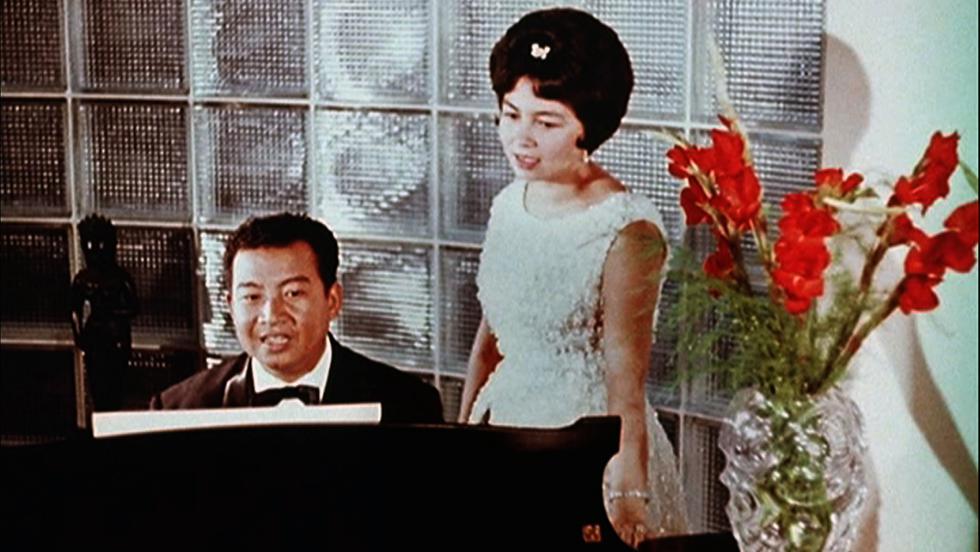It’s long been a cliché that film buffs love foreign film. As a stereotype, it’s up there with the Frenchman’s baguette or a private detective’s desk-drawer bottle of scotch. (I defy anyone to show me a scene where a hard-boiled P.I. pulls anything else out of that bottom drawer, which on every desk I’ve seen appears to have been built specifically to accommodate a fifth of the good stuff.) And like a lot of clichés, this one has a nugget of truth to it. But that truth is not necessarily the truth you might expect.
The thing about most film lovers — to back up just a bit — is that we tend to like films for the same reasons we like great books or paintings or symphonies; they make us feel something in ourselves that we didn’t always know was there, and when the moment of art has passed we feel more connected to the world around us. With domestic films, that feeling might be dulled by familiarity; it’s ironic, but a story that takes place in a familiar milieu can let an audience drift. With our brains rubber-stamping a lot of what scrolls by, we sometimes gloss over the details that make the story. But watch a film from another country, and the cultural differences create a sort of heightened sense of reality. Because so much is different, we key in on that which is the same, and when we leave the theater, it’s with a greater sense of shared experience.
All of which is just preamble to saying that the wonderful DEFA Film Library of UMass Amherst, which houses an impressive collection of East German film, will be screening some films at Amherst Cinema and Smith College on Thursday and Friday, respectively, as part of Sex, Gender and Videotape: Love, Eroticism and Romance in East Germany, the 8th Biennial Summer Film Institute at Smith College. Drawing from a rich, but under-represented (at least on Stateside screens) catalogue, the DEFA programs always offer something special.
On the Amherst screen, the landmark film Coming Out — it premiered the night the Berlin Wall came down in 1989 — tells the story of Philipp (Matthias Freihof), a young man who, after years of repression and attempts to live a more “normal” life, finally accepts his identity as a gay man. A revelation on its release, it continues to be an important document of gay life in East Berlin. It will screen with the 1988 short film The Other Love, which features interviews with East Germans talking about the discrimination they faced as openly gay individuals. In an odd twist, the film — which was produced on behalf of the German Hygiene Museum in Dresden and attempts to show an official acceptance of homosexuality in spite of the interviewees own statements — features an interview with Dirk Kummer, who would go on to co-star in Coming Out just a year later.
Over at Smith College (screenings take place at Weinstein Auditorium in Wright Hall) on Friday, the theme is Promiscuity, Prostitution and Pornography. The slate of films begins at 2 p.m. and runs through the evening hours, and includes two documentaries from Frank Otto Sperlich about sexual politics under East German rule as well as a screening of the 1990 feature Rhinestones, about a photojournalist whose love for a mysterious dancer proves so strong it begins to blend imagination and reality. That film will be introduced by Skyler Arndt-Briggs of the DEFA team; she will also lead a Q&A with the audience.
Also this week: Amherst is screening director John Pirozzi’s film Don’t Think I’ve Forgotten, which shines a light on a wild musical hybrid that swept through Cambodia during the ’60s and ’70s. Mixing Western rock ’n’ roll with traditional Cambodian instruments and singing styles, the new sound was like nothing before it. But as the country’s younger creative population made the most of Western influence, others reacted with violence — when the radical Khmer Rouge took control of Cambodia in the mid-1970s, they wiped out some 2 million people (a quarter of the country’s population) in an effort to keep the country focused on its own traditions and culture. Pirozzi’s film — the director will be on hand with Khmer music collector Nate Hun, who helped compile the film’s soundtrack, for the 7 p.m. Friday screening — tracks this wonderful music that was almost lost to history, and reminds us that the creative spirit is strong the world over.•
Jack Brown can be reached at cinemadope@gmail.com.




